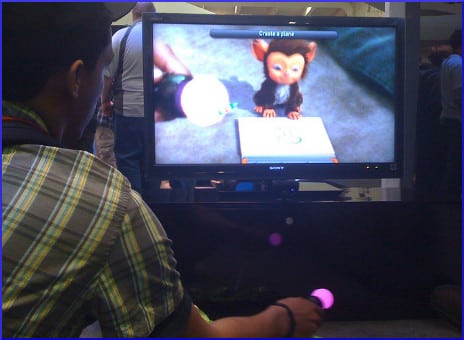 Animal-assisted therapy and animal-assisted intervention are two names for an aspect of “green care,” described in a previous Childhood Obesity News post. Real live animals are not the only ones who can help kids out of obesity. Imaginary animals made of bytes and pixels can also play a role.
Animal-assisted therapy and animal-assisted intervention are two names for an aspect of “green care,” described in a previous Childhood Obesity News post. Real live animals are not the only ones who can help kids out of obesity. Imaginary animals made of bytes and pixels can also play a role.
In mid-2014, the University of Georgia announced that playing with an obese virtual dog could help kids to achieve new levels of health. Researchers from several departments collaborated to create an activity monitoring device to encourage exercise by incentivizing it in an indirect manner—by appealing to a child’s altruism. In a three-day study in which half the subjects used the device and half did not:
The group with the virtual pet was told their amount of physical activity would reflect the condition of their pet, meaning the more they would exercise, the more weight their virtual pet would lose…The study resulted in a pattern of increased physical activity from the group who played with the virtual pets during the study. They averaged 1.09 hours of additional activity per day compared to the group without the virtual pet.
The developers estimated that the device could be sold for $150, but it does not seem to have reached the market yet.
Around the same time, the toy company LeapFrog invented a similar gadget. They started by looking at adult fitness trackers, and learned the dismal news that around one-third of adults who bought fitness trackers used them for under half a year. This did not discourage the LeapFrog people, because they had something different in mind. The company’s CEO, John Barbour, told Fast Company:
A lot of the adult activity trackers really just track your activity. They tell you what you’ve done. What we’ve done here, it’s not really truly about tracking the activity—it’s really about stimulating the activity.
Their new product, the LeapBand, is advertised as the first wearable fitness tracker specially designed for children (and costs under $30.) Children differ from adults in several ways, such as having shorter attention spans. The device’s features include games, quizzes, and a considerable number of activity challenges all having to do with strange little pets. The appropriate age range is fairly narrow, 4-7 years.
From the description it seems pretty high-maintenance, needing to be plugged into a computer every day for charging and to change the settings. For instance, although the audio effects are an important component of the fun, parents have to specify the hours during which it will be silent for school attendance. The activity-tracking function continues all the time, of course. While the device is connected to a computer, parents can add new predetermined activity challenges, up to a total of 50.
Gizmag.com published an extensively detailed review of the LeapBand in which Lakshmi Sandhana wrote:
Pet Play rewards kids with new toys, Pet Boogie has them teach their pets dance moves and in Pet Salon they wash and groom their pets. The Pet Chef game does teach them basic nutrition though…Earning more rewards allows them to do more fun things with their pets, like give them their favorite foods or new toys.
The reviewer noted several areas that could use improvement and, all in all, felt that what started out as good idea had not yet been fully realized.
Your responses and feedback are welcome!
Source: “UGA researchers find virtual pets help increase physical activity, reduce obesity,” Redandblack.com, 06/09/14
Source: “For Kids Aims To Fight Childhood,” fastcoexist.com, 05/04/14
Source: “Review: LeapBand activity tracker for kids,” GizMag.com, 12/23/14
Image by Justin Hall

 FAQs and Media Requests:
FAQs and Media Requests: 











